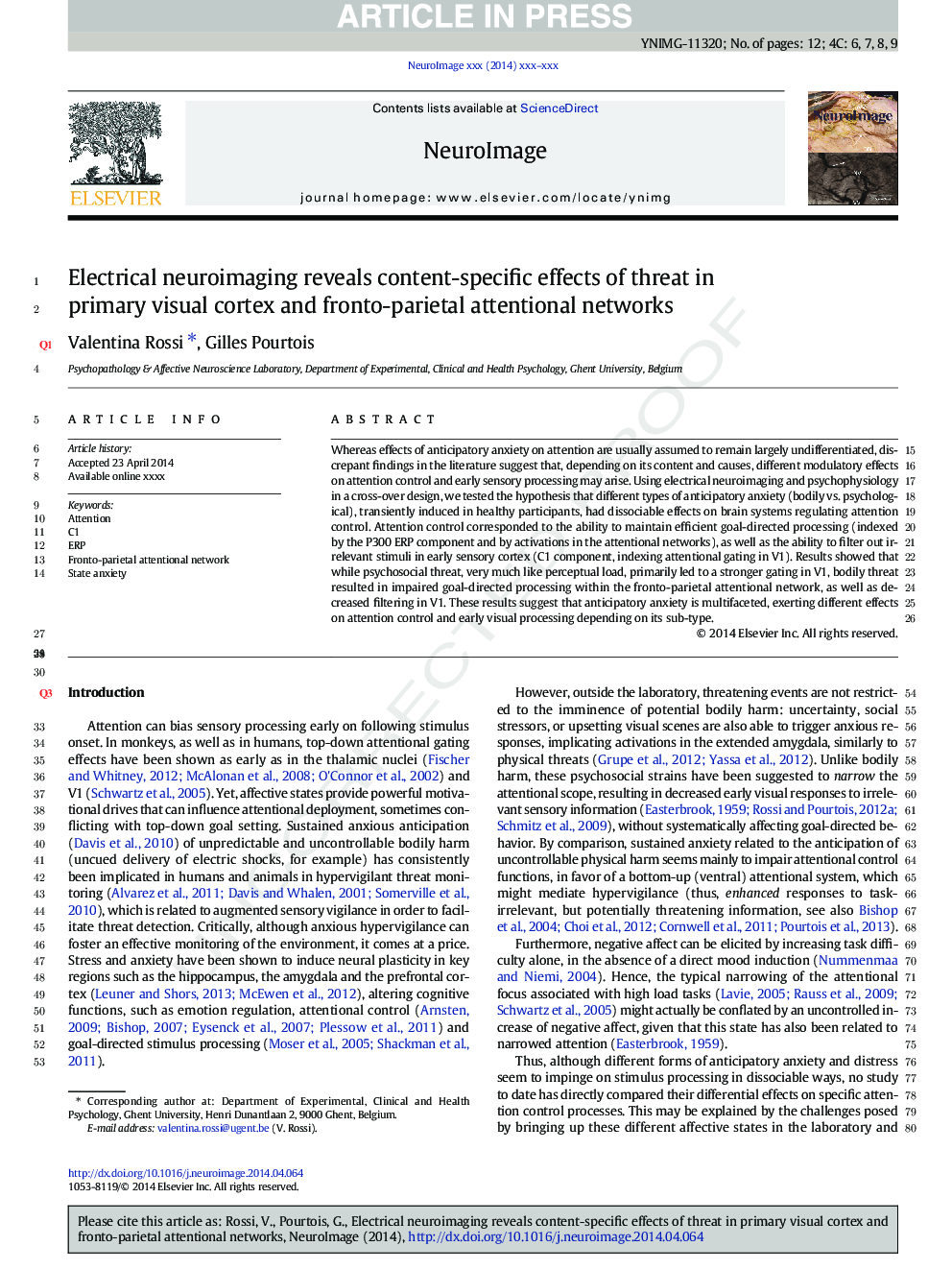| Article ID | Journal | Published Year | Pages | File Type |
|---|---|---|---|---|
| 6026881 | NeuroImage | 2014 | 12 Pages |
Abstract
Whereas effects of anticipatory anxiety on attention are usually assumed to remain largely undifferentiated, discrepant findings in the literature suggest that, depending on its content and causes, different modulatory effects on attention control and early sensory processing may arise. Using electrical neuroimaging and psychophysiology in a cross-over design, we tested the hypothesis that different types of anticipatory anxiety (bodily vs. psychological), transiently induced in healthy participants, had dissociable effects on brain systems regulating attention control. Attention control corresponded to the ability to maintain efficient goal-directed processing (indexed by the P300 ERP component and by activations in the attentional networks), as well as the ability to filter out irrelevant stimuli in early sensory cortex (C1 component, indexing attentional gating in V1). Results showed that while psychosocial threat, very much like perceptual load, primarily led to a stronger gating in V1, bodily threat resulted in impaired goal-directed processing within the fronto-parietal attentional network, as well as decreased filtering in V1. These results suggest that anticipatory anxiety is multifaceted, exerting different effects on attention control and early visual processing depending on its sub-type.
Keywords
Related Topics
Life Sciences
Neuroscience
Cognitive Neuroscience
Authors
Valentina Rossi, Gilles Pourtois,
